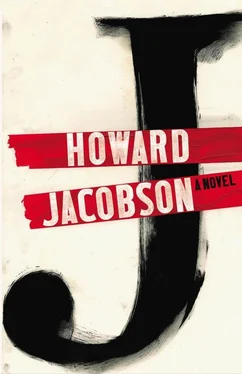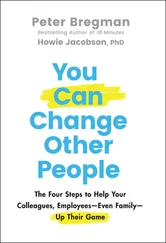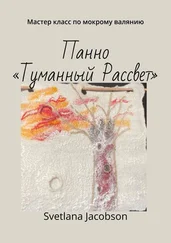‘What?’
‘Pride. You could decide to wear it as a badge of honour.’
‘What do you suggest I do? Change my name back?’
‘That’s a black joke, Kevern,’ she said.
He agreed. ‘The blackest.’
‘Then why did you make it?’
He shrugged. ‘Why did you speak of pride and honour? Where’s the honour, please tell me? You might as well ask this ant which I am about to tread on to view all the previous years of his ant life with pride.’
‘It’s not to his shame that you stamp on him.’
‘I disagree with you. It is his shame, his fault, for being an ant. We have to take responsibility for our fate. Even an ant. What happens to him is his disgrace.’
She was shocked to hear him speak like this. It felt like a blasphemy to her. Perhaps he needed to blaspheme. Perhaps that was his way of working the shock of it all out of his system. Nonetheless she couldn’t let his blasphemies go unchecked. ‘You aren’t saying what you really mean,’ she said. ‘You can’t honestly think that your mother’s and father’s life was a disgrace.’
‘They were in hiding for the whole of it. Yes, it was a disgrace.’
‘And what about those who had nowhere to hide? Their parents and grandparents? Mine?’
‘The trodden generations? A disgrace.’
‘Then it’s up to you to restore respect.’
‘Me? I am the greatest disgrace of all.’
ii
Esme Nussbaum sits at the window of her room and watches rain drip from the ferns. Even when it’s not raining anywhere else it rains in Paradise Valley and even when it doesn’t rain in Paradise Valley the ferns go on dripping.
There is nothing more I can do, she tells herself. It’s no longer in my hands. But it’s in her brain, and with that she wills them on, the harbingers of her bright new equilibrium of hate.
Senior officials from Ofnow are on the phone to her every day. They want to know how it’s proceeding. The population is still tearing itself apart — why, in her very neck of the woods there has been another brutal murder, a double murder, a policeman and his cat, for God’s sake: what maniac would kill a cat? — so they need good news. She tells them this thing must run its course. Yes, she has other irons in the fire, but this is the best bet and, trust her, she won’t take her eye off it for a moment. But she has to remind them that the complex structure of conflict that was Rome wasn’t built in a day and that there’ll be no immediate visible effect even if all does go well. They don’t agree with her. They think the country will feel a different place the minute it learns that WHAT HAPPENED, IF IT HAPPENED was only, after all, a partial solution. They don’t expect a uniformity of response. After years of saying sorry there’s no knowing how the public will react but, by Esme’s own analysis, the news itself — a few well-judged publicity photographs, the odd teaser interview, not giving too much away, in celebrity and gossip magazines — should begin to restore the necessary balance of societal antagonism. ‘Just give us some tidbits we can definitively leak,’ they tell her, meaning that the wedding, the conception, and the birth can wait. The child of course is crucial — For unto us a child is given — but even the promise of it should suffice for the moment.
I’m on it, Esme tells them.
There is one among the importunates whose excitement at the prospect of a cultural rebirth — musicals with wit, reject-rock, hellishly sardonic comedies, an end to ballads — is so intense he can barely express it in coherent sentences. So frequently does he call her that Esme is beginning to wonder whether he isn’t himself one her scouts had missed. I have to tell you, she tells him, that reigniting popular culture is not high among my objectives. He baulks at ‘popular’. The serious theatre, too, needs a shot in the arm, he reminds her. Imagine hearing complex, warring sentences on the stage again. Imagine paradox and bitterness and laceration. Art as endless disputation, bravura blasphemy — Oh, the bliss of it, Ms Nussbaum! Alternatively, imagine the Herzschmerz of a violin and piano sonata, played as only they can play it, as though for the final time. She warns him against premature recidivism. You know about things you shouldn’t know about, she says sternly, and you make unwarrantable assumptions about my politics. I have no desire to restore a status quo from which so many suffered. To regret WHAT HAPPENED is not to throw the baby out with the bathwater. Something needed to happen, even if what did exceeded decency and proportionality. But nor must we force those who have been providentially spared back into demeaning stereotypical patterns. Herzschmerz indeed! I repeat, I am indifferent to the entertainment implications of this project. Not dismissive, just not engaged. My concern is not bebop but the physics of societal mistrust. You cannot have a one-sided coin. If what I am seeking comes about, we will once again enjoy the stability of knowing who we’re not.
Her importuner laughs, optimistic despite what she has said to him, imagining he has heard irony. But he is wrong. Irony is not something Esme Nussbaum does.
It has occurred to her, of course, to worry for Ailinn should things not come about as she intends or, indeed, should it come about too well. What if the years of saying sorry have bred an antagonism even deeper than before? Could Ailinn find herself the object of violent suspicion long before the desired equilibrium has time to take hold?
But Esme is in the grip of a passion to do good, and all other concerns, including Ailinn’s safety, are subjugated to the more immediate task of bringing that good about.
There is still some way to go. The problem is Kevern. Not the facts about the bloodline. The facts are fine. So easy of confirmation, in fact, it is a wonder the Cohens were able to go on living for so long in Port Reuben unmolested. The problem is the flakiness. She isn’t any longer sure that he is suitable. She puts this down to poor preparation. Those who have been making him their study have not done their job well. They have not adequately assessed his character. They have been looking through him, or past him, not at him. But it’s her fault too. When she came down to Paradise Valley it was with a view to scrutinising them both. So what went wrong? Ailinn went wrong. Or rather Ailinn went too right. Esme wonders if her vile father had her number after all. Was she indeed a lesbian? She didn’t think so, but without question she’d found the girl engrossing. And while she was engrossed in the one she failed to keep tabs on the other. Perhaps Kevern had been exercising the same magic. Perhaps he too had blinded those charged exclusively with watching him. Is that their inherited gift, Esme catches herself asking. Are they charmers? Do they beguile? She stills her thoughts. If she’s not careful she’ll be understanding too well why WHAT HAPPENED happened.
Kevern is not her last throw of the dice. Neither, come to that, is Ailinn. Little by little, fragile shoots of hopefulness have shown themselves in remote corners of the country. Nothing showy, naturally, no salt-rose or topaz, but here and there, a violet by a mossy stone, a dark thing between the shadow and the soul, wasting its sweetness on the desert air. And these will certainly be significant when it comes to procreative negotiations further down the line. But they are not her first choice. Ailinn and Kevern remain her first choice.
There is another consideration when it comes to Kevern. Esme has given voice to this more than once, in private while watching the ferns drip and when irked by all the problems associated with his character. Who needs the little prick, she has wondered, surprised by her own violence. Expletives came to her often when she lay in her coma, but they haven’t visited her much since.
Читать дальше












